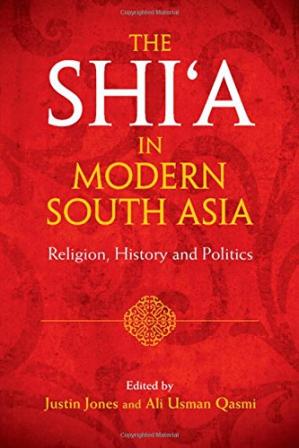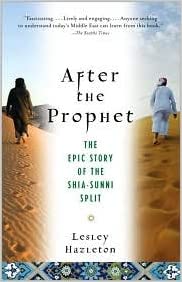Editorial Note:
Pakistan’s Talibanization poses a significant threat to the state and its people. TTP and ISKP are reemerging, assaulting police, government officials, and minorities. TJP, another Jihadist organization, recently attacked a garrison post in Baluchistan province’s Zhob district.
TTP, TJP, JUA, and ISKP are prominent Jihadist groups in Pakistan with ideological leanings towards Deobandi Islam, promoting radical anti-Sulh-e-Kul culture. Deobandi Islam’s violent struggles have historically killed Shia Muslims, fueled by persecuted clergy campaigns.
Molvi Muhammad-ul-Allah Khalili Qasimi’s article on Darul Uloom Deoband’s website falsely classifies Mughal emperors as Shia or Sunni based on their religious inclinations, portraying Shia courtesans as conspirators against Sunni Islam. The article highlights the founding fathers’ attempts to divide Sunni and Shia Muslims through religious hatred literature.
“The Darul Uloom Deoband lords made an effort to shield Muslims from the influence of Shiism and Sabaism. These Hazrat Shah Waliullah Dehlavi’s successors have rendered very significant and vital contributions in safeguarding the honour of the Sahaba and transforming Muslim beliefs and behaviour. “Hadiyyah Al-Shia” and “Ajwaiba Arbaeen” by Hazrat Maulana Muhammad Qasim Nanotwi, which provide comprehensive answers to the queries posed by this sect. In a similar vein, Hazrat Maulana Rashid Ahmad Gangohi’s “Hidaya Al-Shia” was published and contained a very scathing critique of Shia propaganda.”
He describes how the leader of Deoband, Qasim Nanotwi, violently suppressed Shia ceremonies in the city of Deoband:
“Taziadari and other Shia customs were essentially eradicated by Hazrat Nanotwi. It all began in a mosque in the Deoband town. The followers those practices of the town were prepared to die, as soon as Hazrat Nanotwi and one of his murids, Haji Muhammad Yasin, alias Dewanji, who made the announcement that Tazia would no longer rise. But with the help of his supporters in Deoband, the adversaries were ultimately routed, and the Tazia structure was dismantled and discarded.”
He goes into great detail about how the founder of Darul Uloom Deo Band led a violent campaign to destroy the Taziyadari rituals, which Shias and Sunnis performed together, in the city of Deoband.
He draws attention to the aggressive campaign waged by the early Deoband Ulama, who followed Nantavi, against Shia Muslims.
“Following Hazrat Nanotwi, Hazrat Maulana Khalil Ahmed Saharanpuri entered the arena of active opposition to Shiite and its followers. He launched an offensive against Shias in Bahawalpur state and won. His eminent contribution to ‘Rejection of Shiite’ is “Hidayat al-Rashid fi Ifham al-Unaid,” a nine-hundred-page book that is regarded as one of the most thorough works on the subject.”
Maulana Abdul Shakoor Farooqi Lucknowi is the individual he continues to mention as aggravating the violent policy against the Shias. In his well-known treatise, Dr. Mushirul Hasan accuses Farooqi of destroying the composite culture in Lucknow and claims that during Ashura in Muharram, there were deadly Shia-Sunni riots directed against Shia Muslims because of destructive role of Farooqi:
“The Imam of Ahl al-Sunnah wal Jama’ah, Hazrat Maulana Abdul Shakur Farooqi Lakhanvi, is one of those who made a substantial contribution to the rejection of Shi’ism and Saba’ism in the latter period. In this chapter, Hazrat Maulana Lakhanvi stands alone due to the wealth of information he has supplied on every facet of this crucial subject. Through discussions and speeches, he shook Shia homes, and he remained a weapon against Shiism for all time. He collaborated with other Deoband thinkers, particularly Hazrat Sheikhul-Islam Maulana Syed Hussain Ahmad Madani.”
He calls the Deobandi clergy’ aggressive crusade against Shia Muslims an endeavor that goes beyond preaching and formal teaching.
“Darul Uloom’s work extended beyond the realm of formal education; instead, he focused on the challenge of changing the behaviour and convictions of the entire Muslim world. The Haqqi academics fought valiantly against innovations, myths, and polytheistic practises and beliefs soon after Dar al-Uloom was founded. The Deoband Ulama’s serious reforming efforts allowed the Sunni Muslims to progressively shed their Shia influences and turn away from their superstitions and rituals.”
Prominent Darul Uloom Deoband intellectuals, including the founders, launched a violent campaign against Shia Islam that gradually evolved into a genocide against Shia Muslims.
Many academics contend that the Jihad movement of Shah Ismail Dehlvi and Syed Ahmed Barelvi, which not only resulted in armed violence against Shia Muslims in Uttar Pradesh, was the source of religious violence against Shia Islam and its adherents during the colonial era. As a result, Pashtun society has developed harsh prejudices towards Shia Muslims. (Read “The Shias of Pakistan: An Assertive and Beleaguered Minority, written by Andreas Rieck”).
The genocide of Shia Muslims is a part of jihad under the extremist strain of Deobandi Islam. As a result, all of the Jihadi groups that developed in Pakistan under Deobandi Islam have killed both Shia Muslims and members of other religions.
One of the most repressed Muslim groups in Pakistan nowadays is the Shia community. It is subject to a genocide campaign that includes suicide bombings, mob lynchings, and targeted killings. Their ability to practice their religion freely is in jeopardy since they are accused of blasphemy for engaging in Shia rituals and devotion.
Here we are re-producing the exclusive investigating analysis on Emergence of TJP written by renowned journalist Iftikhar Firdous, Founder and Editor of The Khorasan Diary.
Does Tehreek-e-Jihad Pakistan Actually Exist?

TJP claimed its first attack in Pakistan’s southwestern Balochistan province’s Chaman district in February this year and later claimed to have been involved in the recent explosions in the counter-terrorism facility in northwestern Khyber Pakhtunkhwa province’s Swat city, which official investigations until now indicate it was not an act of terrorism.
Read: The Perplexing Credit Taking Dynamics within Militant Organizations
However, on 27th April 2023, the group came up with another claim stating to have been involved in a Vehicle-Borne Improvised Explosive Device (VBIED) suicide attack on a security forces compound in the southern district of Lakki Marwat, Khyber Pakhtunkhwa.
The security officials, having direct knowledge of Pakistan’s militant landscape, believe that the mysterious group is actually a cover for other major outfits in the country, such as the Tehreek-e-Taliban Pakistan (TTP) or Hafiz Gul Bahadur.
“This is the new strategy and we have been observing this new trend of attacks by the TTP and Hafiz Gul Bahadur in order to avoid public condemnation, few of these either remain unclaimed or are claimed by lesser-known groups”.
A TTP commander when asked if the TJP had any affiliation with his outfit said that he had no knowledge of this new jihadi entity.” But most likely they consist of people who either we know or are former affiliates who might have formed a group of their own. However, we are trying to find more about them”, he commented on condition of anonymity, without giving any further explanation.
A senior TTP commander, Sarbakaf Mohmand, while talking to The Khorasan Diary, said that the TJP was nothing but an internet phenomenon that would only appear on social media, just to grab attention. “I’ve been trying to reach out to them, but they did not get back”, he said in an audio message sent to The Khorasan Diary.
While exclusively speaking to The Khorasan Diary from an undisclosed location, the TJP spokesperson, who introduced himself as Mulla Qasim, described the outfit as an entity made of fighters who have previously been involved in a fight during the Soviet and American invasions of Afghanistan.

Exclusive Image: Muhammad Khurasani (Spokesman of Tehreek e Taliban Pakistan)
Explaining the group’s objectives, Qasim said that they are strict adherents of the Deoband school of thought. “Our struggle is the continuation of the Silk Letter Movement”.[1]
“Since all other efforts to implement the ideology of Pakistan in its true spirit as envisioned by Sheikh-ul-Hind have failed for the last 75 years, we have decided to opt for an armed struggle in the country”, he said. [2]
The group’s spokesperson said that their leader is Abdullah Yaghistani[3], who is said to have studied at the Jamia Farooqia (a prominent Deobandi seminary in Karachi) and had been involved in fighting US/NATO forces in Afghanistan in the recent past. “After achieving success in Afghanistan, we have extended our struggle into Pakistan”, he said.
In reply to another question, whether TJP was affiliated with any specific militant organization globally or regionally, he said that they would support anyone who shares their cause for the implementation of Shariah in Pakistan. “[However,] We do not see any other way except an armed struggle; we have not so far pledged allegiance to anyone, including the Afghan Taliban”, he claimed.
When asked about the recent religious decree by Mufti Taqi Usmani, a leading Deoband scholar in Pakistan, which categorically maintains an armed struggle against Pakistan as against Shariah rulings, the spokesman told The Khorasan Diary that while Mufti Taqi Usmani is a renowned scholar, the decree sounds more based on his personal reasoning.
[1] A clandestine Deobandi movement (1913-1920) aimed at independence from the British Raj by seeking support from Turkey’s Ottoman Empire, the then Emirate of Afghanistan and the German Empire.
[2] Sheikh ul Hind – a reference to Maulana Mahmudul Hassan, the founder of the Silk Letter Movement.
[3] Yaghistan is a pre-partition geographical label that defined the frontier of the British Raj and Afghanistan.






